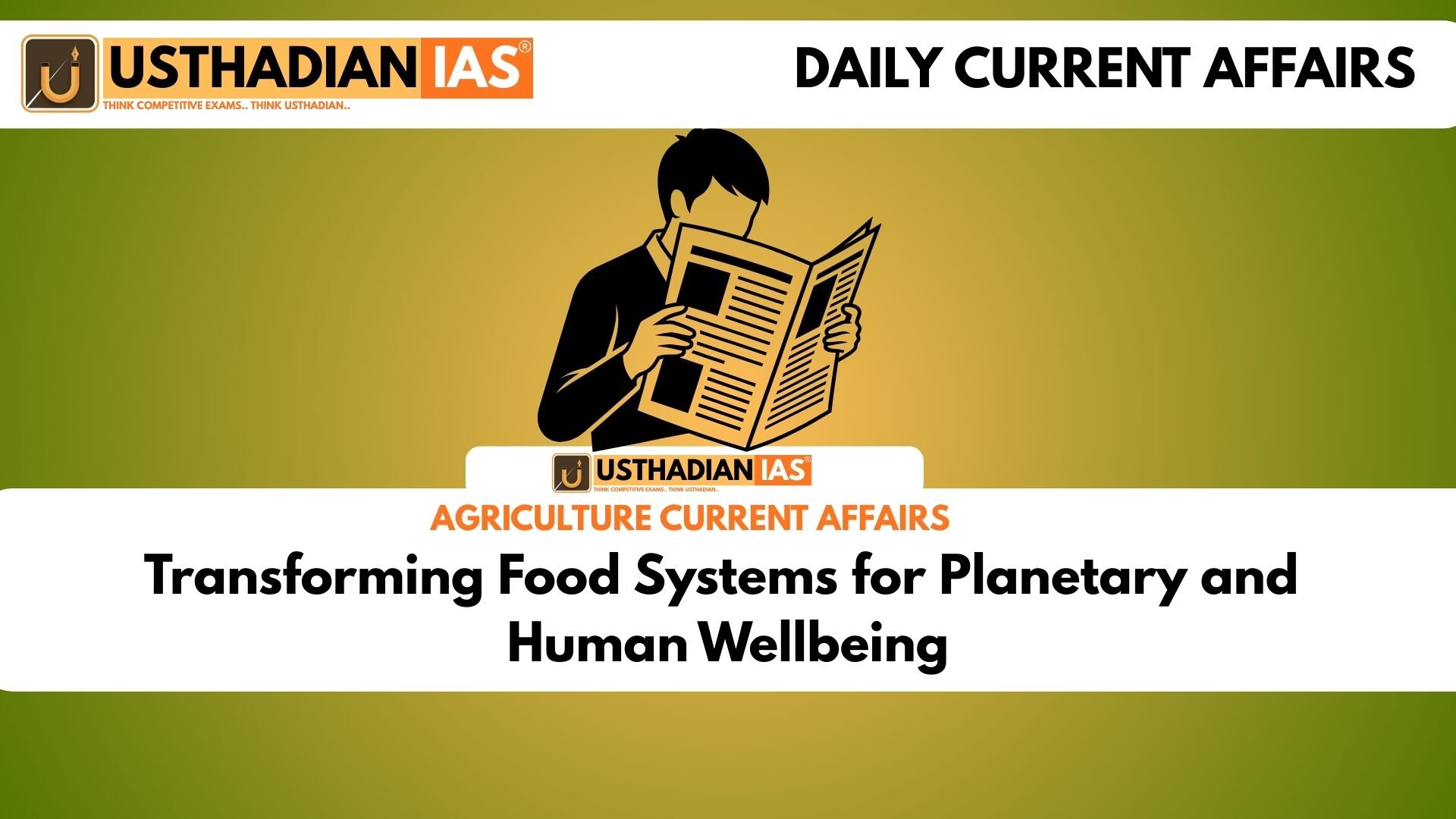The Rising Importance of Food Systems
Transforming Food Systems for Planetary and Human Wellbeing: The EAT-Lancet Commission report (2025) emphasizes that even if the world successfully transitions away from fossil fuels, food systems alone could breach the 1.5°C Paris temperature goal. This finding reveals how central food production and consumption are to the global climate agenda.
Static GK fact: The Paris Agreement was adopted in 2015 during COP21 in Paris to limit global warming to well below 2°C.
Understanding the Food System
A food system includes everything from production and processing to distribution, consumption, and waste management. It affects not just economies and health, but also social justice and environmental sustainability. Agriculture, land use, and consumption patterns together influence global resource use and emission levels.
Static GK Tip: Agriculture contributes around 18% of India’s GDP and provides employment to over 40% of the workforce, showing its crucial socio-economic role.
Major Planetary Boundary Transgressions
Food systems are the largest driver of environmental degradation. According to the report, they contribute to five planetary boundary breaches: land system change, biosphere integrity, freshwater use, biogeochemical flows, and greenhouse gas emissions. Nearly 30% of total GHGs are linked to food production and processing activities.
Inequality in Environmental Impact
The report exposes a sharp inequality in food-related environmental pressures. The richest 30% of the global population account for over 70% of ecological stress from food systems. Meanwhile, developing nations like India face greater challenges in balancing sustainability, employment, and nutrition.
Challenges for India
Despite a gradual decline in its GDP share, agriculture in India will continue to remain a major employer by 2050. Hence, restructuring food systems requires addressing both environmental and labour challenges. Policymakers must align agricultural reforms with climate resilience, rural livelihoods, and biodiversity protection.
Key Recommendations for Transformation
Planetary Health Diet (PHD)
The PHD promotes a plant-rich diet emphasizing whole grains, legumes, fruits, nuts, and vegetables, with limited fish, dairy, and meat intake. It can reduce both nutritional deficiencies and environmental damage.
Conservation Agriculture
This approach integrates sustainable and ecological intensification—reducing soil disturbance, maintaining continuous soil cover, and ensuring crop diversification. Such methods preserve soil fertility while lowering carbon emissions.
Policy Integration and Global Frameworks
Transforming food systems requires integrating food, climate, and biodiversity policies. Alignment with the Paris Agreement, Kunming–Montreal Global Biodiversity Framework, and national dietary guidelines can support a unified sustainability vision.
Static GK fact: The Kunming–Montreal Framework (2022) aims to halt and reverse biodiversity loss by 2030 through global cooperation.
Static Usthadian Current Affairs Table
Transforming Food Systems for Planetary and Human Wellbeing:
| Topic | Detail |
| EAT-Lancet Commission | Global scientific body promoting sustainable and healthy food systems |
| Paris Agreement | International climate accord adopted at COP21 in 2015 |
| Planetary Health Diet | A plant-rich diet designed to benefit both human health and the planet |
| Conservation Agriculture | Farming system emphasizing minimal soil disturbance and crop diversity |
| India’s Agricultural Role | Contributes around 18% to GDP and employs over 40% of the population |
| GHG Contribution | Food systems account for nearly 30% of total global emissions |
| Inequality in Impact | Richest 30% cause over 70% of food-related environmental pressures |
| Kunming–Montreal Framework | Global biodiversity pact adopted in 2022 to reverse ecosystem loss |
| Key Planetary Boundaries | Land system change, biosphere integrity, freshwater, biogeochemical flows, GHGs |
| Report Year | Published in 2025 focusing on urgent global food transformation |








